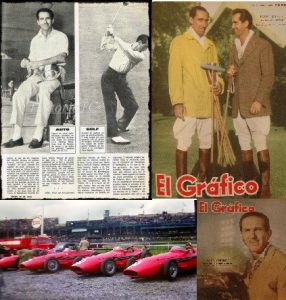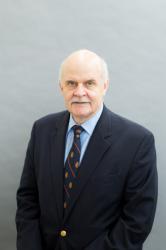Now that I am full-time at the Acton Institute (I had been associated since the beginning, but on the governing board) I am trying to read most of its output. Not an easy task giving the numerous books, articles, academic papers and blog posts it publishes each year. Acton has an outstanding Journal of Markets and Morality, which has already reached 21 volumes. I browsed the contents of the most recent edition and saw that it devoted 40 of its 200 pages to a symposium on Golf, Business, and Leadership. My first reaction, since I have practically never played golf, was to skip those pages. But as this short blog proves, I decided to take a look at what these bright individuals were saying about golf.
I will let you look at the Journal for yourself. I will share what first came to my mind, though, and it has to do with humility, pride and envy. I am not a golfer. I have tried it for fun, but not more than ten times in my whole life. The ball would seldom go where I wanted it to go, the ball and the sweet spot much smaller than my usual tennis implements.
Sportsmen who do not play golf in my native country of Argentina pay little attention to the sport, but we do have a favorite true story. One of the most talented Argentine athletes, Carlos “Charlie” Menditéguy, excelled in multiple sports. He bet one of his best friends, a top amateur golfer, that he could become a scratch, zero handicap, in a matter of months. People debate whether it took nine months or two years, but he did it and won his bet.
It is certainly true that Menditéguy excelled at sports: junior tennis champion, perhaps the best polo player ever, Formula 1 race car driver…his contract with Maserati was cancelled, but he said it was worth it. He had skipped the trials and the race. No one knew where he was—except Brigitte Bardot, who spent the weekend with him in the Côte d’Azur. Few contributed as much as he did to the myth of the Argentine playboy. (For millennial readers, the French actress Brigitte Bardot was at the time the most famous symbol of feminine beauty.)
Reading his biography, some would think that “Charlie” had it all. He was not the most humble, however, and his success led to occasional arrogance. His life was short. Parkinson’s disease led to surgery and he died at 59.
Some might pass close to well-manicured elite golf courses and feel envious. Not I. Being used to hard work and more active sports, I am still puzzled about golf, though perhaps one day I will enjoy it.
One last lesson I learned after these articles on golf, human values, leadership, management and more is: if we learn to see, using our spirit to complement our minds, we can find God in all good things. We can even draw good lessons from evil.
Now back to reading Markets and Morality’s more typical articles on the importance of a free economy.
(Homepage photo credit: public domain.)

